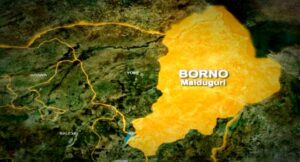Former Kaduna Senator, Shehu Sani, has urged Kaduna state politicians, elders, and youths to learn to be courageous like Nigerian youths seeking justice for Mohbad’s death.
Mr Sani in a tweet via his official handle, asked residents of Kaduna state to take a cue from those seeking justice for Mohbad, and demand to know the whereabouts of Idris Abubakar, popularly known as Dadidayta a social critic who went missing in Kaduna about four years ago.
In a statement issued on Monday, Mr Sani expressed regret that inhabitants of Kaduna state were hesitant to raise concerns about the whereabouts of the social media critic who went missing four years ago.
Mr Sani asked inhabitants of the state to take inspiration from those fighting for justice for Mohbad and demand that justice be served in the case of Dadiyata.
“For four years since the abduction of Dadiyata in Kaduna,bPoliticians,nElders and even the youths in the state were afraid of raising his issue and questioning the Government and security agencies over his whereabouts. I hope they will learn from the tenacity of the young people who are demanding justice for Mohbad. Wishes and hopes alone can’t deliver justice without agitation,” Mr Sani wrote.
It has been four years since Idris Abubakar popularly known as Dadiyata was abducted from his home in Kaduna, North-West, Nigeria.
On 2nd August 2019, unidentified men seized Dadiyata at the entrance of his home, and till date, neither his whereabouts nor the identity of his abductors is known.
The question of ‘where is Dadiyata?’ is being asked for four years and no concrete response has been provided by the Nigerian authorities.
Dadiyata was a known critic of the All Progressives Congress government on social media, and a supporter of the Rabiu Musa Kwankwaso’s political movement, Kwankwasiya.










More Stories
Bomb explodes at Borno bus stop, kills nine
NDLEA busts syndicate sponsoring pilgrims with cocaine to hajj, arrests 3 kingpins in Kano
Kwankwaso mourns 22 Kano athletes killed in road accident